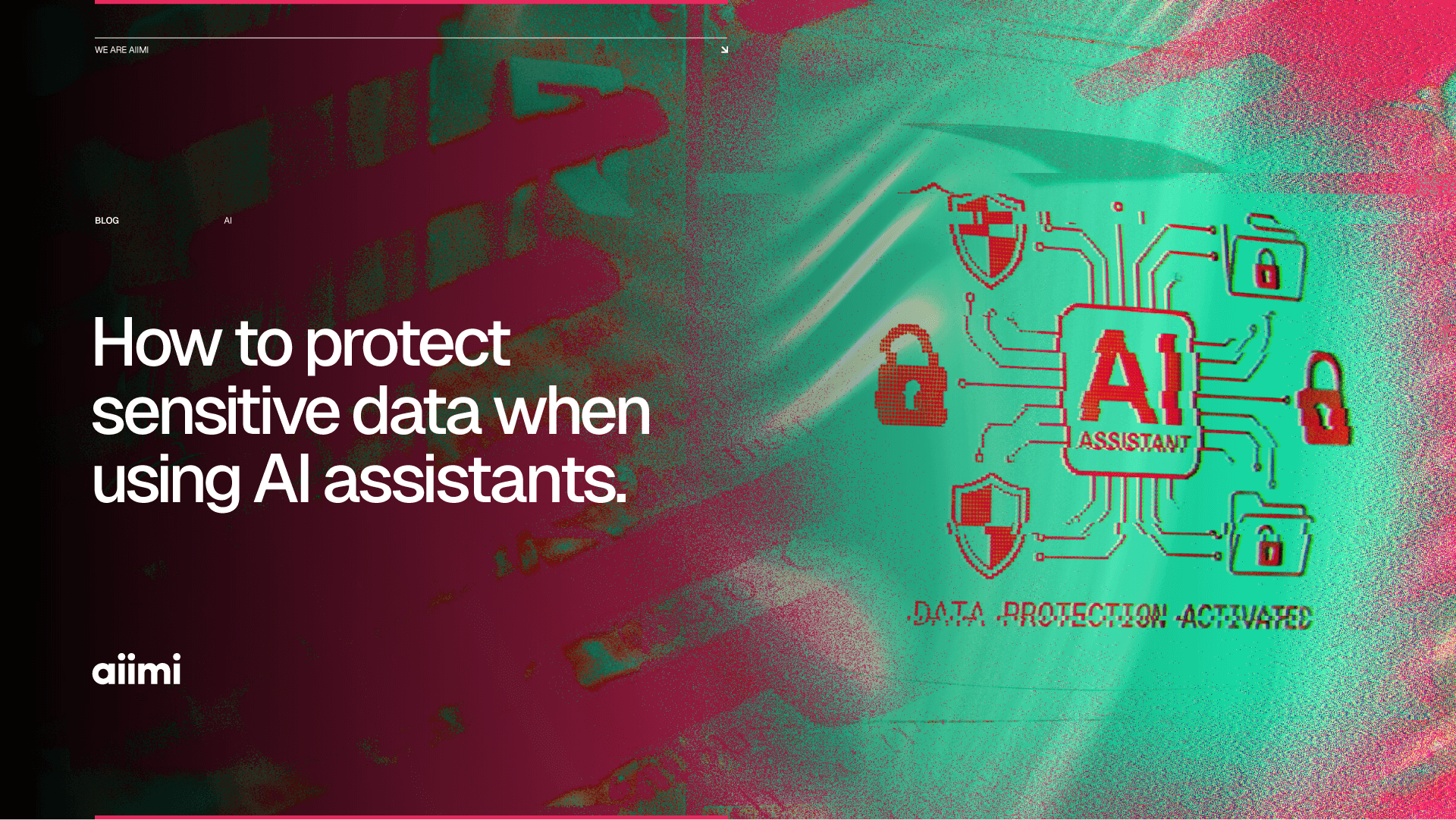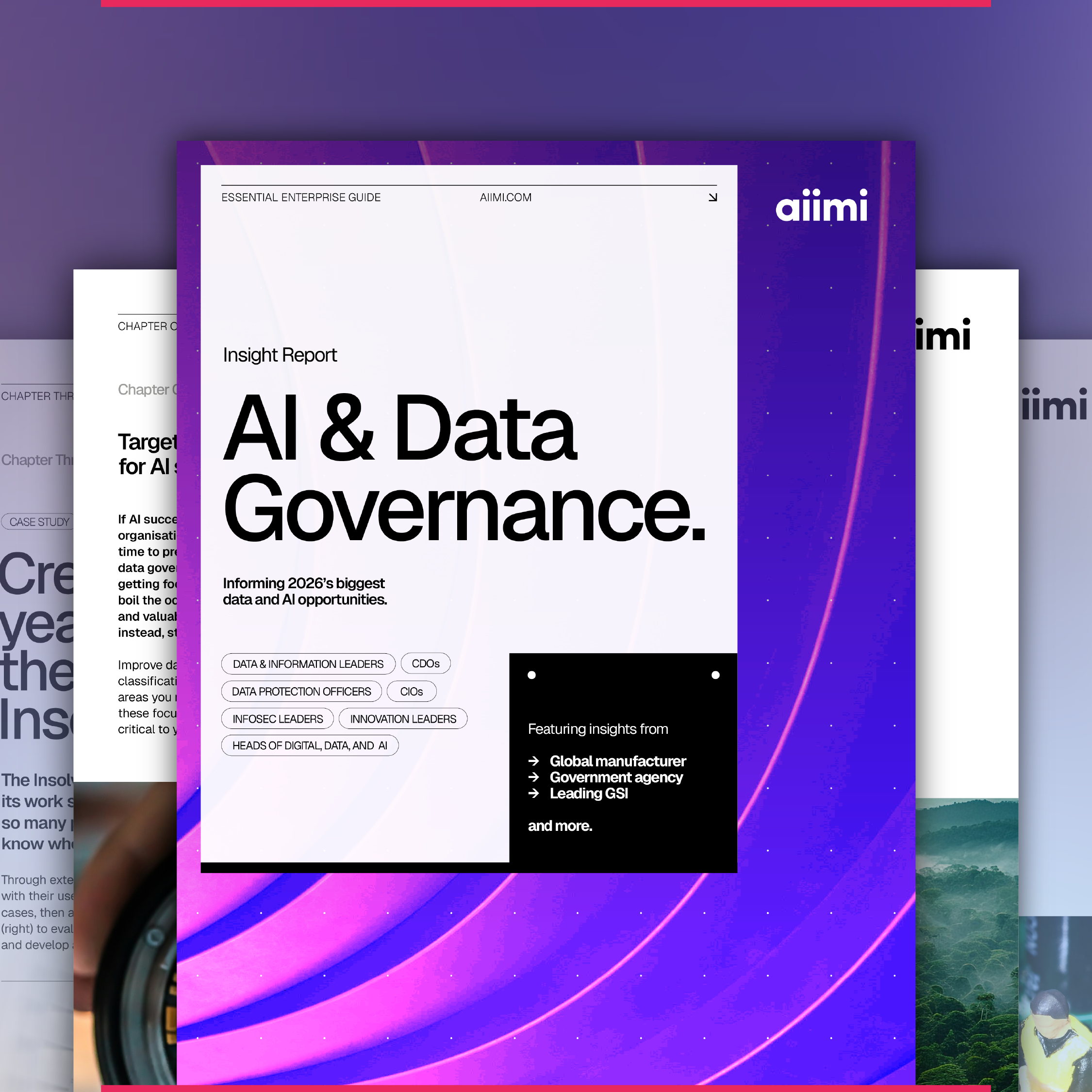Why your remote compliance team needs collaborative DSAR technology to succeed

Hybrid and remote working are here to stay. It’s an open and shut case. Progressive businesses are gaining new ground with shrewd investments in technology. Taking an automated approach to collaborative remote working means your compliance team will process more DSARs more promptly. Aiimi Data Protection Officer Matt Eustace explains how.
In the post-pandemic workplace, the lion’s share of employers (70%) plan to expand or introduce regular working from home. The Chartered Institute of Personnel and Development (CIPD) also reports that more than half of employers are keen to allow remote working at all times. With the majority (57%) of senior HR staff and decision-makers being in favour of extending everyone’s right to request flexible working from day one, the Flex From 1st campaign could mean even more employees working remotely. Many having never stepped foot in your office.
In response to this unfurling trend, HR leaders are starting to really consider how effectively ‘remote’ staff can collaborate on shared projects long term. When it comes to employees, three out of every four find collaboration more challenging when remote working, so it’s a shared and pressing priority. What measures will you put in place so your compliance team can address this scenario head on?
Remote working in compliance calls for cooperative forward planning
Alexia Cambon, Director of Research at Gartner, believes advanced planning – intentionality – is crucial for effective collaboration, saying: “Our research shows that teams of knowledge workers who collaborate intentionally are nearly three times more likely to achieve high team innovation than teams that do not use an intentional approach.” It’s time to consider how your compliance teams can collaborate by design to deal with subject access requests when working remotely.
One calculated DSAR solution that supports knowledge sharing and collaboration is to invest in software purpose-built to meet your compliance team’s needs. Working remotely on one accessible central platform is a sure-safe solution to processing your DSAR requests at speed. Let’s check out three key challenges facing your compliance team – and how putting the right technology in place fosters collaboration in our post-pandemic world.
Fragmented teams using multiple platforms slow down DSARs
When fragmented compliance teams work asynchronously (alone and apart) on different tasks at different time points on multiple platforms, more time is spent across the board finding, collating, sharing, reviewing, and processing every subject access data request.
Plus, you increase the chance of repetition and duplication, while running the risk of missing, losing or misplacing personal data. All the while creating more opportunities for human error to creep in. When dealing with customer and employee DSARs, personal data is often hidden in unstructured contexts, making it even harder to find for disclosure.
This is where one automated accessible platform will enable your remote compliance teams to work better together, surfacing all structured and unstructured personal data to speed up your search, discovery, and collation process. DSAR automation avoids the time-consuming pitfall of storing documents in the wrong place. When everyone can clearly see where everything lives, they won’t repeat work – and they can more easily keep track of the data subject access request lifecycle.
Lengthy processing times and multiple handovers between different team members also compound the likelihood of incomplete, inaccurate, and late disclosures, plus rising DSAR request costs. Combined, you run the risk of missing the one-month ICO (Information Commissioner’s Office) deadline, resulting in requests for extensions and more probable penalties. A key government department was recently threatened with a £17.5 million enforcement notice for failing to adequately respond to almost 7,800 DSARs, including 25 requests receiving absolutely no DSAR response full stop.
By investing in one coherent technology platform, you’ll reduce the number of players and minimise the number of handovers, delivering a more comprehensive and swifter DSAR response. Automated alerts asking reviewers and compliance managers to step in as needed to address redactions and disclosures resolves potential delays, allowing your DSARs to smoothly progress. All stops covered. Deadline met.
Onboarding employees and collaborative working remotely are more complex
Training new team members? It’s that bit trickier when your compliance team is working remotely and manually. More experienced or long-standing colleagues can find it harder to show new starters the ropes when your DSAR team’s taking a labour-intensive and online collaborative approach.
Mindful that different people often follow divergent processes, unless you’ve got an automated system in place that everyone can access, your working practices are in danger of becoming less coherent and more disparate. This tends to be compounded when you’re not sharing the same bricks and mortar office space.
Deciding to invest in an intuitive and easy-to-use automated platform means all your team members, new starters and long-term staff alike, will follow the exact same DSAR processes – and when they collaborate, they’ll be using the self-same DSAR tools.
Pre-built customised settings used by all equals consistent searches. In-built DSAR processing checklists accessed by everyone keeps the entire team in the know and on track. Automating the addition of supporting documents and policies for your each subject data access request delivers a convenient, consistent, compliant, and collaborative DSAR response.
Remote communications are less secure and prone to shoulder surfing
When working remotely, you also need to be certain your communications platforms are completely secure, so your compliance team can safely circulate files for actions, second-stage reviews, and redactions.
If you accept contributions from other team members via systems such as email and Slack, it puts personal data at risk of being accessed by people (i.e., hackers) outside your organisation. If your compliance team’s working remotely within a public environment, you also need to be doubly aware of ‘shoulder surfing.’ Remote workers connecting to enterprise systems using individual or public networks (e.g., at home or in a cafe) increases the opportunity for cybersecurity risks and data breaches too.
Although you can’t always control outside factors such as ‘shoulder surfers’ or unsecured Wi-Fi networks when your team’s working remotely, you can make a strategic decision to supply an all-in-one collaborative data subject access request software solution. A single all-embracing platform where personal data can be added to DSAR collections, shared for review and redaction, and even disclosed directly to your data request subject. Risk is minimised because files (and personal data) never leave your secure all-encompassing platform. Keeping everything tidy and safe in one collaborative place.
There’s never been a better time to onboard automated DSAR software to equip your compliance team with the only toolkit they need. Foresight is better than hindsight when you’re tasked with processing DSARs accurately, securely, and collaboratively, no matter where your desk is placed.
Find out how our automated technology platform – the Aiimi Insight Engine – can help your compliance team take the reins, together, for a speedier DSAR Solution all round.
Stay in the know with updates, articles, and events from Aiimi.
Discover more from Aiimi - we’ll keep you updated with our latest thought leadership, product news, and research reports, direct to your inbox.
You may unsubscribe from these communications at any time. For information about our commitment to protecting your information, please review our Privacy Policy.



